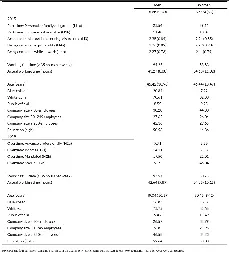
-
Official retirement age is expected to grow globally. Men are the most affected.
In many countries around the world, women enter retirement earlier than men: typically, the difference set is about 5 years. As women already leave work for their pensions, men remain part of the workforce.
As the retirement age grows for everyone, men thereby remain the most affected: with an average male life expectancy of 70,7 years, an average man is going to see about 5,5 years of retirement, as compared to 12,5 years for women that have both lower retirement age and higher life expectancy.
-
Are women's voting rights actually universal? A closer look at countries where women still cannot practically vote
graziadaily.co.uk Here Are The Countries Where It’s Still Really Difficult For Women To VoteHere are the countries where women can't vote, or it's really difficult to - plus it's hard to work, be educated and generally live a good life. Read more on Grazia.

If you look into official data on the voting rights for women, it will paint you a pretty positive picture: all countries, except for Vatican city, do officially allow women to vote in elections.
However, in practice, there can still be plenty of barriers for women to vote. From legal restrictions for women to leave their house without husband's permission, to threats of violence on the booths, there are many things that make it impossible for women to actually put in the ballot.
The article explores these barriers in some of the countries around the world.
-
Globally, 72 countries still have mandatory military service. Men are disproportionately affected
72 countries from various regions of the world still have military conscription. Of them, only 23 conscript women; all 72 conscript men.
Some of the countries that conscript both men and women have different conditions of service; for example, in Israel, men serve 32 months, while women serve 24.
-
Around the world, intersex children are subjected to forced surgeries and HRT
As the legal system and society at large fails to recognize intersex people, surgeries and forced HRT continue to be pushed as a means to force binary gender standards.
Neither children themselves nor the parents are properly informed of the harms and risks involved in the procedure, as highlighted by the Human Rights commission of the United Nations.
This comes at a time when similar procedures are routinely denied to trans people, prompting questions on the validity and sincerity of concerns over gender treatment of children and adolescents arising under many conservative governments.
-
Men continue working significantly longer hours than women, according to 2019 data collected in Germany
Average working time of German men is 43,27 hours, as compared to 34,63 hours worked by women, constituting a 20% difference. Men are also found to be more likely to take blue-collar jobs that are commonly more dangerous and physically demanding.
However, women are more likely to cite family obligations as the reason for choosing part-time work, suggesting more unpaid home labor compared to men.
Interestingly, the reasons for overtime work may also differ between genders: men are more likely to get additional hours to boost income, while women are more likely to step in for colleagues.
-
US women continue to spend more time caring for children, and there is no clear change of trend in the last decade
www.usnews.com /news/health-news/articles/2023-05-11/gender-reveals-data-shows-disparities-in-child-care-roles
Women still spend more time caring for children compared to men, as evident from the US survey carried out between 2011 and 2021.
Interestingly, while levels of employment affected child care time for both men and women, for men the effect was less pronounced.
One other interesting finding is that the difference between men and women is minimal when both work full-time, suggesting a more equal distribution of duties due to lack of available time.
-
Ever thought: What even is a gender? Here's one perspective
YouTube Video
Click to view this content.
I hope you have patience for hour-long video essays
-
41% of women and 26% of men in the US have reported contact sexual violence, physical violence, or stalking by an intimate partner in the National Intimate Partner and Sexual Violence Survey.
www.cdc.gov About Intimate Partner ViolenceThis page defines intimate partner violence, presents the latest data and describes outcomes.

Women constitute majority of victims for sexual violence, physical violence, and stalking; however, the prevalence of victims among men also appears to be higher than commonly suggested.
-
Globally, 70% of suicides are committed by men, according to WHO
According to WHO statistics for 2019, 70% of suicides globally are committed by men.
In the US, this number goes as high as 80%, according to CDC: https://www.cdc.gov/suicide/facts/data.html
-
40% of women live in the countries with restrictive abortion rights, according to Center for Reproductive Rights
reproductiverights.org The World's Abortion Laws - Center for Reproductive RightsHave a question? Get in touch directly Take it with you Download attachment: The World's Abortion Laws Mission The Center for Reproductive Rights uses the

The general trend is still towards liberalization of abortion; however, four countries – namely US, Poland, Nicaragua and El Salvador – have rolled back on some of the abortion freedoms.




